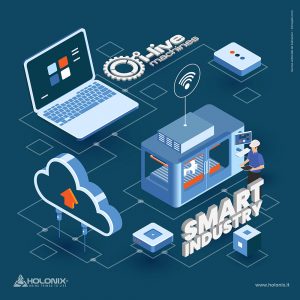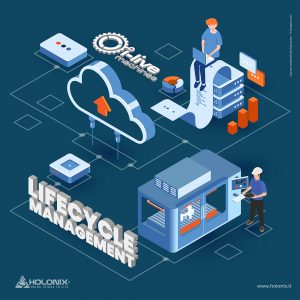In any sector, one of the most important working relationships is, without a doubt, the one established with partners and suppliers; it is on this, in fact, that the continuation or the end of the relationship depends, a collaboration that obviously positively or negatively influences the economic performance of the companies themselves.
Focusing on themanufacturing sector and, specifically, in the field of industrial machinery production, the manufacturer has a close relationship with its customers since it is to them that it sells its machines and it is to them that it must respond in case of critical issues and malfunctions; in the same way, the user will have to trust your supplier and appeal to him for any inherent problem.
The relationship between machine builder and customer is a delicate relationship, a faithful relationship in which both parties rely on each other, which, unfortunately, is never easy: physical distance, cultural and linguistic diversity, the the order of priorities of each subject are key elements that play a decisive role.
Over the years, innovation has also brought new innovations in this area, implementing the use of technology.
Let’s take a concrete example.
Once the machine leaves its workshops, the manufacturer is no longer able to know with certainty the status and the activities it is carrying out at the customer; the only carrier of information is the customer himself who, in the event of malfunctions, can call the traditional “assistance” and request prompt intervention, which is not always efficient and effective; not only that, the geographical position can cause delays with respect to the arrival of a piece to be replaced or can lead to linguistic misunderstandings about the problem. This is how, yesterday, tele-assistance and telemonitoring only allowed “breakdown” maintenance, or, at best, based on statistics; an instrumentation that certainly allows you to observe the behavior of your machinery in real time and to discuss with the interlocutor at a distance but limited, limited and above all reactive and not proactive.
It is to overcome these obstacles too that new industrial technologies have been designed, system automation which, thanks to the use of ad hoc tools, can make the activities of the Smart Factory simple and free from organizational obstacles: we are talking about software in the Cloud. for the monitoring, analysis and historicization of data from the machine park.
But what are the real advantages that a technology like this, defined as 4.0, can really bring to the producer-customer relationship by favoring both parties?
Certainly, it improves the assistance services provided by the manufacturer, reducing costs and increasing guarantees, verifies the performance of the machines in real time, thus promptly reporting any problem in order to react in advance. Both parties have the opportunity to view the data available (the manufacturer can in fact share part or all of the information found), making it a targeted use focused on improving and making their systems more efficient. Furthermore, always the manufacturer, can have the real awareness of what is happening to their machines, even if far from home, receiving feedback without intermediary filters and avoiding word of mouth or dispersion of information; all important functions to give continuity to an evolutionary process now undertaken by industrial players and which can also be found in various products already available on the market, such as i-Live Machines, Augmented Intelligence product-software in Cloud, created specifically for Industrial Machinery Manufacturers.
Holonix has always promoted the culture of innovation and, also thanks to products such as i-Live Machines, interfaces with small-medium Italian industrial realities so that they too can benefit from technological innovations and improve not only the internal management of their own line. productive but also the relationship and the relationship with one’s interlocutors.
The European Level-up project
Culture implemented also thanks to the participation as a partner, within numerous European projects, related to the affirmation and implementation of technologies for manufacturing; the goal of some of these projects, including Level-Up (G.A. 869991 | www.levelup-project.eu) in fact, it joins the desire to find solutions that allow not only to monitor the machine park in real time and to carry out preventive diagnostics (as in the case of the aforementioned i-Live Machines), but to arrive at an optimized management of the entire cycle life of the machinery, through the use of software tools integrated in scalable platforms; specifically, among the future objectives, to propose a new maintenance algorithm that can identify interventions in real-time according to measurements from the field and based on an estimate of the residual life of a machinery.
But now, let’s focus on the present; each manufacturer has the possibility to take a step forward in their digitalization, adopting intelligent tools that allow them not only to have the necessary control for optimal management of their machinery but also to be able to provide a qualitatively superior service and, above all , cultivate a stable and lasting relationship with its customers.
Read the article also on the Innovation Post.






